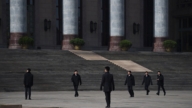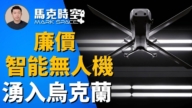【新唐人2013年05月29日讯】中共当局公布最新的两部党内法规,其中《党内法规制定条例》,让中共有权立法,这是中共首次拥有正式党内“立法法”。条例一公布马上引起评论界的关注。法律学者担忧,以党纪代替国法,让党高于国,未来要如何依法治国。
27号,中共中央公布《党内法规制定条例》及《党内法规和规范性文件备案规定》。
《党内法规制定条例》对党内法规的制定权限等作出了明确规定。而《备案规定》则对党内法规和规范性文件备案的原则等,提出了具体要求。其中,中共《党内法规制定条例》被称为中共党内的“立法法”。
对此,“杭州师范大学”教授,同时也是“中国法律史学会”的执行会长范忠信,在个人微博上表示,中共制定党内法规“立法法”有待商榷,因党只能有党纪,而“法只能是国家的”。
按中共的“国家立法法”,只有全国人民代表大会和全国人民代表大会常务委员会,能行使国家立法权,而法规只有行政法规和地方性法规两种,并没有提及“党内法规”。
网友说,“党内法规”仅为党内“文件”的形象说法,不应称为法规。
大陆宪政学者陈永苗:“如果从法律上术语说,一个社团不应该是国家,他没有立法的法权,他可能能制定一些对他们自己内部有约束力的党纪、党规这是没问题的,但是他要立法这个就比较古怪了。”
陈永苗认为,共产党对中国本身的破坏力和党内腐败程度,早已达到需要整治的时候,所谓党内立法,可能是想通过法律技术层面,对中共几千万的共产党员来进行约束,强化对政权的控制。
陈永苗:“没有听说一个政党、一个社团是可以立法的。哪有一个政党能立法的,那相当于这个政党就是个国家,拥有国家法权。不要说习近平,就毛泽东,对当时的共产党员,可能有一千万或几百万都无可奈何,发动10年文革也没搞好,党内的内部整治是没法救党的。”
有评论分析,所谓党内“立法法”该由谁制定,约束对像是谁,最后由谁来执行?这些都是须要确立的问题,因此,也可能产生另外一个利益共同体。
时事评论员李善鉴:“这个其实没什么意义了,自己约束自己,这是个不可能的事情。这个党很大程度上它不像一个正常社会的政党,实质上更像一个黑帮,无论怎样,只不过从原来的一个流氓的黑帮,标榜成现代化的黑帮,但是不管怎样还是个黑帮。”
针对中国目前的政治制度,李善鉴认为,一个政党凌驾于国家法律之上,则无法解决当前中国社会面临的各种问题。
李善鉴:“中国现在问题就是法律本身不受尊重,无论它的政府机关,特别是凌驾国家之上的党,根本不去尊重它,那么自己给自己定了个法,就会尊重其他的法吗?不会的。不会有任何变化,不会有任何影响。”
中国《河南商报》时事评论部主编王攀在微博上说,以后不叫“党纪国法”,而叫“党法国法”。王攀写道﹕“干脆8000万人独立成国得了。世界上不到8000万人规模的国家多了去了。一个政党可以有立法法,凌乱。我的疑问是,国法大、还是党法大?冲突了,又是党法领导国法吗?”
采访/田净 编辑/黄亿美 后制/郭敬
China’s Ruling Party Declares Its Legislative Law
The Chinese Communist Party (CCP) authorities
have announced two new laws.
One of them, an intra-Party law making ordinance,
gives the CCP legislative power.
It is the first CCP Legislative Law, this action has
immediately aroused concern from critics.
Legal scholars are worried that this legitimizes
the Party’s overriding of state laws.
They ask, how can it realize a governance that will
adhere to the rule of law in the future?
On May 27, the CCP Central Committee released
an “Ordinance on intra-Party lawmaking" and
“Rules on registration and the filing of intra-Party
laws and regulations, and standardized documents.”
The law-making ordinance makes clear that
the CCP has the power to make intra-Party laws.
The registration and filing rules put forward
specific requirements for the working principle.
The law-making ordinance is considered
the CCP’s internal Legislative Law.
Fan Zhongxin, executive director of the Chinese Legal
History Association, commented in his micro-blog.
He said that the establishment of Intra Party Legislation Law
remains open to question.
He argued that a political party only has power to establish
disciplines, whilst laws serve the country and it’s citizens.
According to China’s current Legislative Law, the
National People’s Congress and its Standing Committee can exercise legislative power.
The term “rules” contains administrative regulations
and local laws and regulations.
It does not cover “intra-Party laws and regulations”.
A netizen speculated that the intra-Party laws may
be a telling parlance of the CCP internal instructions.
They should not be called laws and regulations.
(China’s constitutional scholar) Chen Yongmiao: “Legally,
a social group is not a country, it has no legislative power.
It has rights to establish internal disciplines and rules.
But it’s really weird that it makes its own Legislative Law.”
Chen Yongmiao says, the CCP has long needed to be
rectified in the light of its destruction and corruption.
The alleged intra-Party Legislative Law may be the Party’s
technical attempts to restrict the actions of its members,
so as to cement its ruling status.
Chen Yongmiao: “It’s unprecedented that a political party
or a social group has right to make laws.
That means this political party is equivalent to
a country’s people, with legislative power.
Even Mao Zedong was helpless in rectifying
the CCP members in his era, let alone Xi Jinping.
Xi faces many more CCP members today than Mao did.
The CCP’s internal rectification cannot save itself.”
Some critics have said that the intra-Party Legislative Law
was supposed to specify the lawmaker, the target objects, and the executive role.
They think it may thus give rise to
another community of interest.
(Critic) Li Shanjian: “It actually makes no sense.
Self-restriction, for the CCP, is impossible.
The Party is largely unlike normal political parties,
it’s more like a sinister gang, in its nature,
although it is now, progressively, a much more
modern gang of rogues.”
Li Shanjian remarks that today in China,
a political party has openly trampled on state laws.
This makes it impossible to solve any existing social issues.
Li Shanjian: “The current problem in China is that
the ruling party shows no respect for the law.
In particular, the Party itself makes a law, can this
help to create more respect for state laws?
No, it cant. As for the possibility of reform,
there won’t be any changes or impact.”
Wang Pan, chief editor on current affairs, for China’s
Henan Business Daily, commented on his micro-blog.
Wang wrote, in the future, the term “Party discipline
and state laws” can be called “Party laws and state laws”.
“Once and for all, these 80 million people (CCP members)
have simply set up a separate nation within the nation.
A political party can makes a legislative law, what a mess!
My question is, which is superior, state laws or Party laws?
When both collide, will the result still be that
the Party’s law will take the lead?”






























